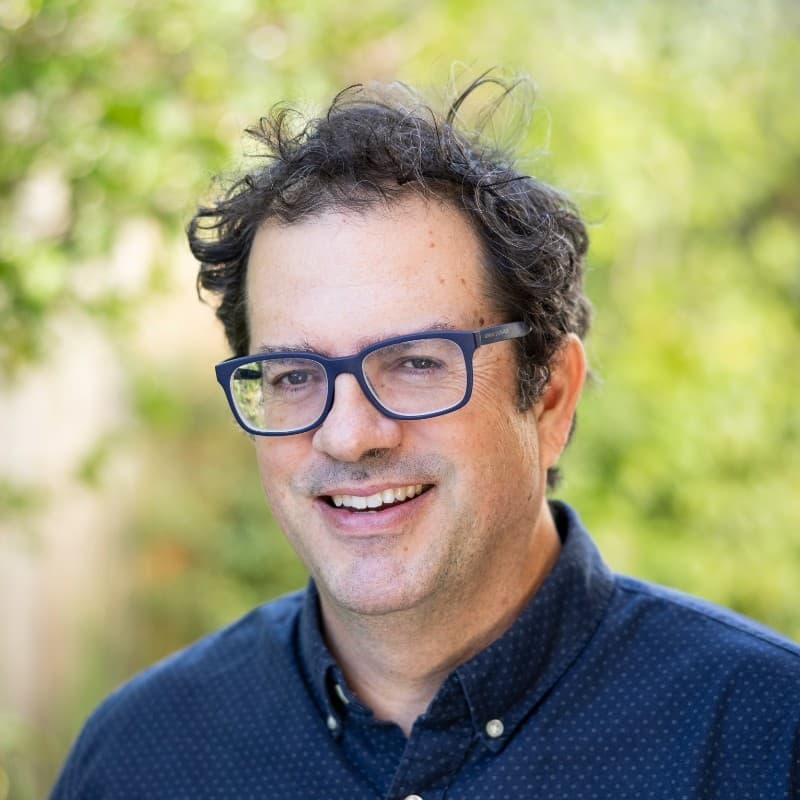/ EPISODE 71
On Shaping the Future of Goal Setting and Performance
GUESTS

Ben Lamorte
Coach, Author, and Founder at OKRs.com
Listen on
Listen on
Google Podcasts
Listen on
Pocket Casts
Listen on
Spotify
Listen on
Apple Podcasts
Listen on
Stitcher
or use this URL in your favorite podcast app: https://feeds.transistor.fm/dreams-with-deadlines
Episode notes
Host Jenny Herald dives deep into the journey of Ben Lamorte, the renowned OKRs expert and founder of okrs.com, in this captivating episode of Dreams With Deadlines. Discover Ben's transformation from a network engineer to an OKR visionary as he shares his profound insights on deploying successful OKRs, overcoming challenges, and his bold coaching framework.
What you will learn
- Unveiling the ten universal deployment parameters for successful OKRs implementation.
- Exploring the distinction between milestone and metric key results and when to use each.
- Understanding the roles of OKRs project leads and the importance of executive sponsorship.
- Unpacking the real-world examples where OKRs drive outcomes over outputs.
- Gaining valuable perspectives on applying OKRs in cross-functional and rapid growth areas.
Show notes
- [00:00:19] Introduction and Ben Lamorte's Enthusiasm for OKRs
- [00:00:48] OKRs as a Critical Thinking Framework: Ben describes OKRs as a critical thinking framework, emphasizing the importance of ongoing discipline and asking three key questions:
- Where do we want to focus for near-term progress?
- How do we know we've achieved the objective?
- What is the intended outcome of the task? These questions help define objectives and key results, align efforts, and prioritize measurable impact.
- [00:04:38] The Importance of Embedding Alignment in OKRs: Ben discusses the trend of embedding alignment throughout the entire OKRs program, emphasizing its importance as a critical success factor. He highlights the shift away from cascading OKRs directly and notes that more organizations are now implementing OKRs correctly from the start, leading to positive developments in the OKRs landscape.
- [00:08:37] Mantras for Successful OKRs Implementation: Ben shares five key mantras for successful OKRs implementation:
- "less is more" to focus on a small set of OKRs,
- "crawl, walk, run" to scale gradually after achieving success,
- "OKRs are not everything" as they represent the most important areas for progress,
- "the only way to learn OKRs is to do OKRs" by practical implementation,
- and "outcomes, not output" to measure intended results.
- The discussion also hints at the emerging trend of embedding alignment into every aspect of the OKRs program.
- [00:13:05] Embedding Alignment in OKRs for Organizational Cohesion: Ben highlights the importance of alignment in OKRs, emphasizing the need for clear answers to key questions and achieving both top-down and horizontal alignment. He explains that alignment should be established at each stage of the OKRs program to ensure organizational cohesion and addresses the ongoing nature of aligning throughout the OKRs journey.
- [00:17:00] The Importance of Universal Deployment Parameters in OKRs: Ben highlights the importance of universal deployment parameters as foundational prerequisites for successful OKRs implementation. These parameters, including setting the OKR level and defining the OKR cycle duration, play a crucial role in ensuring effective OKRs training and implementation.
- [00:22:55] 10 Universal Deployment Parameters for Effective OKRs Implementation: Ben identifies ten essential parameters to define before implementing OKRs. These parameters are crucial for successful OKR implementation and training workshops.
- These parameters include levels, number of OKRs, scoring methods, cycle duration, milestone vs. metric key results, OKR publishing and storage, performance review integration, KPI vs key result differentiation, alignment, and bottom-up involvement.
- [00:28:53] Roles in Defining Deployment Parameters: Defining the ten universal deployment parameters for OKRs involves OKRs project leads from various functional teams and the executive sponsor, allowing for training based on these parameters and the flexibility to adjust subsequent cycles.
- [00:31:32] The Distinction and Appropriate Use of Milestone Key Results: Milestone key results represent significant achievements or outcomes that indicate progress towards a future metric key result, such as obtaining permits to begin construction or listing an app on the Apple Store, and can be valuable in certain situations to track progress and set the stage for future success.
- [00:36:56] Distinguishing Between Output and Outcome Key Results: Jenny and Ben discuss the distinction between output and outcome key results, emphasizing the importance of outcome-oriented milestones representing true outcomes and setting higher requirements for target and stretch key results. The challenge of committing to government approval is also highlighted.
- [00:39:45] Quick-Fire Questions for Ben:
- Where does Ben want to see OKRs.com by the end of the year? Ben wants to have a clearer definition of the impact of OKRs through an OKRs maturity model and quantifiable data on the success of OKRs.
- Where are OKRs most important within organizations? OKRs are particularly valuable in cross-functional initiatives and rapid growth areas like the environmental movement.
- Where does Ben think OKRs are headed? Ben believes that OKRs will continue to grow, and their application will expand beyond formalized goal-setting, becoming more of a mindset and a way of asking outcome-focused questions across the organization.
Relevant links
- Measure What Matters," by John Doerr
- "The OKRs Field Book: A Step-by-Step Guide for Objectives and Key Results Coaches," by Ben Lamorte
About our guest:
Ben Lamorte, founder of OKRs.com, is an internationally recognized OKRs coach. He has consulted with organizations around the world, including eBay, Zalando, and Booking.com. He's authored two books — Objectives and Key Results: Driving Focus, Alignment, and Engagement with OKRs (co-authored with Paul Niven) and The OKRs Field Book.




